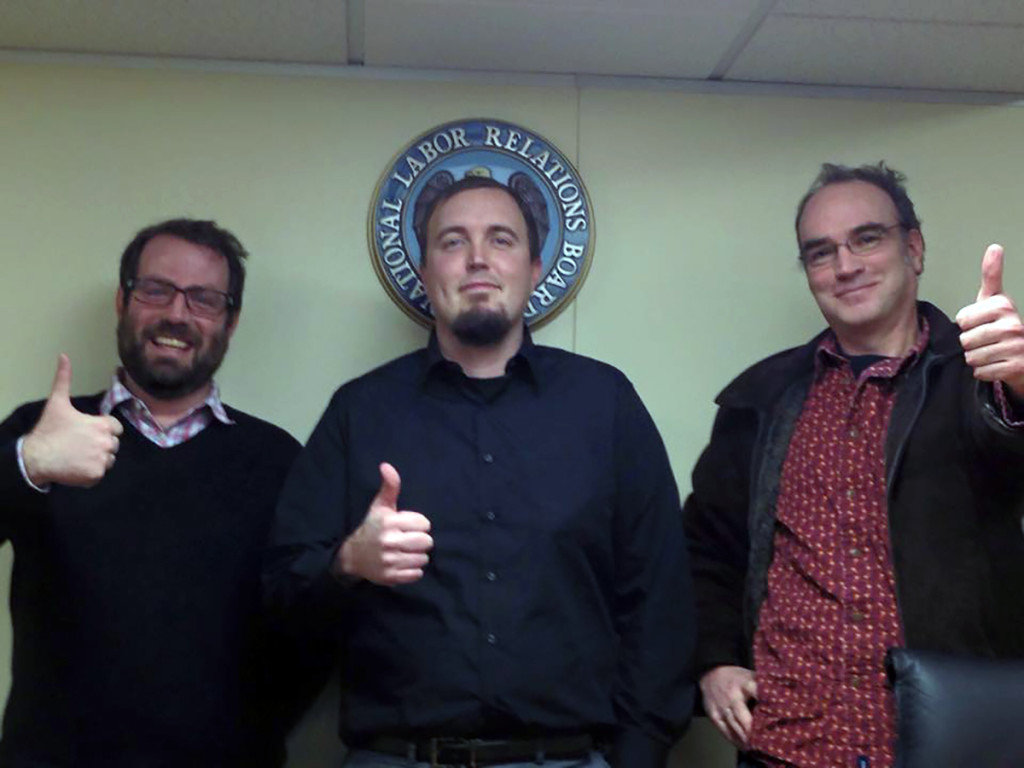By Fox Valley
Labor News staff
Thursday, Jan. 8, 2015

Adjunct faculty at Washington University in St. Louis recently voted Union yes, marking a significant victory for part-time instructors known as the working class of the academic community. The SEIU Local 1 has been pushing its Adjunct Action campaign throughout the St. Louis area and nationwide for more than two years. Photo courtesy of Adjunct Action
ST. LOUIS — Adjunct professors at Washington University in St. Louis, have voted to join adjunct faculty at schools across the country in SEIU/Adjunct Action. More than 400 faculty members won their union Jan. 5 as ballots were counted at the National Labor Relations Board office in St. Louis.
The victory is the first in St. Louis and a step forward to improve the working conditions of the increasing numbers of part-time and contingent faculty in higher education.
Forty-four percent of faculty in St. Louis area private, non-profit colleges and universities work part time and 73 percent of all faculty are not on the tenure track. Adjunct faculty, now the majority of teaching faculty across the country, typically have no job security, no benefits and low pay , which forces adjuncts to string together jobs at multiple colleges and universities to make ends meet.
At the same time, revenues and tuition have increased steadily over the last two decades while spending on instruction has declined — and it’s adjuncts and their deeply-in-debt students who are suffering as a result.
Michael O’Bryan teaches in the English Department at Washington University. “This is a great day for faculty, students, and the entire community of higher education in St. Louis and throughout the region,” he said. “This victory is an important step toward improving the labor conditions of university faculty and, consequently, the learning experience of the students taught by those faculty. We look forward to enhancing Wash U’s already exemplary record of service to its students and to the St. Louis community.”
St. Louis adjunct faculty are following in the footsteps of adjuncts at nearly 20 universities who have joined Adjunct Action in the past two years, including Dominican University, St. Mary’s College and Otis College of Art and Design in California who voted to join SEIU in the last week.
They join faculty at the Howard University and Georgetown University in Washington, D.C., Tufts University and Northeastern University in Boston who have all voted for unionization in order to strengthen their voices and improving working conditions for all part-time faculty in America.
Darcie Star teaches dance at Washington University. “By uniting in solidarity to form our union we are part of building a positive future and creating sustainable change for those working in higher education,” she said. “This victory gives a voice to improved conditions for both faculty and students, as well as offering a platform for communication of needs and desires of those who provide service to the future generations.”
—Adjunct Action
